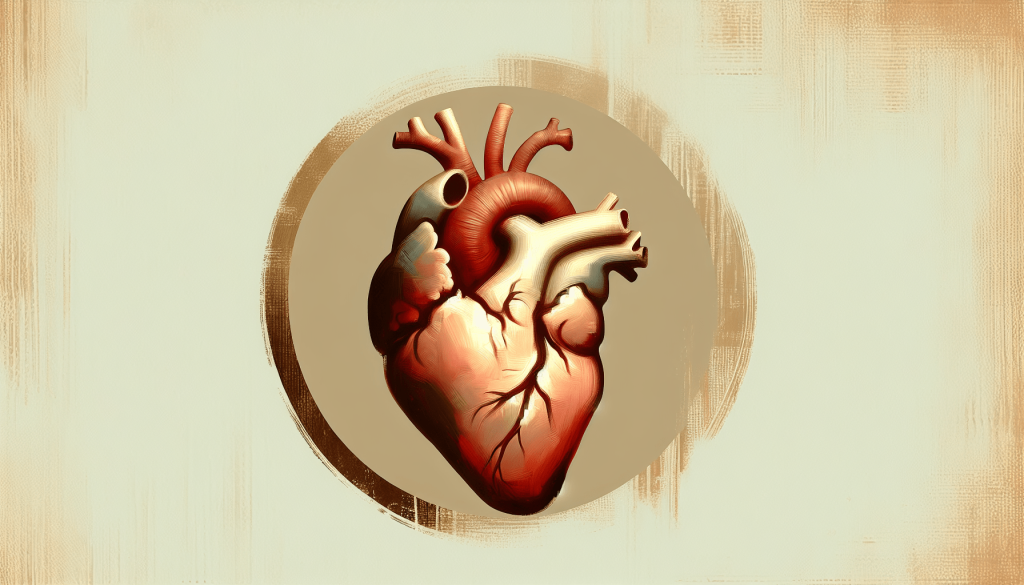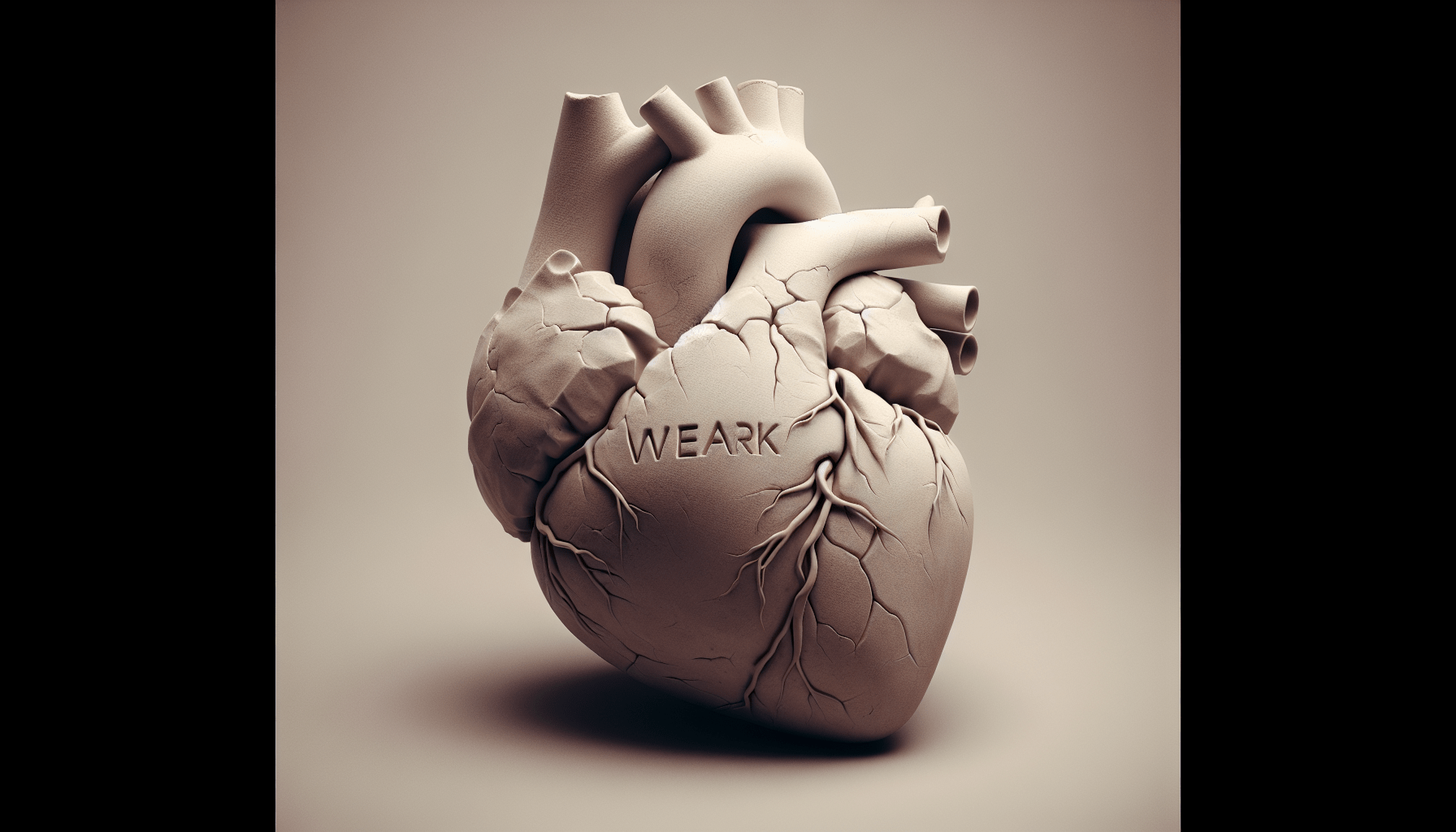What Are The First Signs Of A Weak Heart?
Welcome to “What Are The First Signs Of A Weak Heart?” where you’ll discover essential insights into recognizing the early indicators of a struggling heart. In this article, you’ll learn about the subtle symptoms that could be a call for attention, such as unexpected fatigue, shortness of breath, and swelling in your legs and ankles. Pay close attention to what your body is telling you, as these early signs are crucial in seeking timely medical advice and maintaining your heart health. Have you ever wondered what the first signs of a weak heart are? It’s a good question to ask because recognizing these early symptoms can be crucial to getting the right medical attention before things get worse. A weak heart is no trivial matter, and it’s something that can impact your life in many ways. So, let’s dive into this important topic together and figure out how to keep your heart healthy and strong.
Understanding the Importance of Heart Health
Your heart is like the engine of your body. It pumps blood, delivers oxygen, and provides nutrients to keep you up and running. When your heart is weak, it can’t perform these tasks efficiently, and that can have a ripple effect on your entire health.
Why Heart Health Matters
Heart health isn’t just a medical concern; it’s a quality of life issue. When your heart is weak, you may feel overly tired, experience shortness of breath, or even suffer from more severe complications like heart failure. This can impact everything from your work to your daily activities and even your mental health.
Early Signs of a Weak Heart
Being aware of the early signs can make all the difference. Here are some of the first symptoms you might notice if your heart isn’t as strong as it should be:
Shortness of Breath
If you find yourself getting winded by activities that used to be easy, it might be a warning sign. This could happen during exercise, normal activities, or even when you’re just lying down.
Fatigue and Weakness
Feeling excessively tired or weak is another symptom. When your heart isn’t pumping blood efficiently, your muscles and organs can’t get the oxygen and nutrients they need, causing you to feel drained.
Swelling (Edema)
Swelling in your legs, ankles, or feet can be a sign of heart weakness. This is because your heart isn’t pumping effectively, causing blood to pool in certain areas of your body.
Chest Pain
While not always present, chest pain or discomfort is a serious sign. It’s essential to get medical attention right away if you experience this symptom.

More Detailed Symptoms to Watch For
Now that we’ve covered the basics, let’s go a bit deeper into the less obvious signs of a weak heart.
Persistent Coughing or Wheezing
While coughing can be a minor issue, a persistent cough that produces white or pink blood-tinged phlegm could indicate a heart problem. It’s a result of fluid buildup in the lungs due to a weak heart.
Increased Heart Rate
An unusually fast or irregular heartbeat can be your heart trying to compensate for its weakened state. If you notice your heart racing frequently, it’s worth getting checked out.
Difficulty Concentrating
A lack of focus or feeling mentally cloudy can also be a sign. When the brain doesn’t get enough blood flow, it can affect your cognitive functions.
Reduced Appetite and Nausea
When your heart is weak, digestion can slow down. This can make you feel full more quickly or even nauseous.
Confusion or Impaired Thinking
A drop in blood flow can result in confusion or disorientation, particularly in older adults. If you notice sudden changes in your mental state, it’s time to consult a doctor.
Comparing Common Symptoms of a Weak Heart
To help you get a clear picture, here’s a table comparing the early signs and more detailed symptoms of a weak heart:
| Early Signs | Detailed Symptoms |
|---|---|
| Shortness of breath | Persistent coughing or wheezing |
| Fatigue and weakness | Increased heart rate |
| Swelling (edema) | Difficulty concentrating |
| Chest pain | Reduced appetite and nausea |
| Confusion or impaired thinking |

Risk Factors for a Weak Heart
Different factors can contribute to a weakening heart. Knowing these can help you take preventive measures.
Age and Gender
While heart diseases can affect anyone, the risk increases with age. Men are generally at higher risk at a younger age, but women’s risk catches up post-menopause.
Family History
Genetics play a role too. If your family has a history of heart diseases, your probability of facing similar issues increases.
Lifestyle Choices
Your diet, physical activity, and habits like smoking or drinking can either support or sabotage your heart health. A sedentary lifestyle or a diet high in unhealthy fats and sugars can weaken your heart over time.
Medical Conditions
Conditions like high blood pressure, diabetes, and high cholesterol are significant risk factors for heart disease. Managing these conditions can help maintain heart health.
Diagnosing a Weak Heart
If you suspect your heart is weak, the next step is getting a proper diagnosis. Medical professionals use various methods to determine the health of your heart.
Physical Examination
Your doctor will start with a physical exam to check for symptoms like swelling or unusual heartbeats.
Blood Tests
Blood tests can reveal markers that indicate heart problems, such as cholesterol levels, triglycerides, and certain enzymes.
Imaging Tests
X-rays, echocardiograms, and MRI scans can provide detailed images of your heart and show if there are any structural issues.
Stress Tests
Stress tests assess how your heart performs under physical stress. Usually, you’ll be asked to walk on a treadmill while your heart rate and rhythm are monitored.
Electrocardiogram (ECG or EKG)
An EKG measures the electrical activity of your heart and can reveal irregularities that might point to weakening.
Treatment and Management
If you do have a weak heart, don’t panic. There are several ways to manage and treat this condition.
Medications
Several medications can help manage the symptoms and underlying causes of heart weakness. Common types include:
- ACE inhibitors: These lower blood pressure and reduce stress on the heart.
- Beta-blockers: They slow your heart rate and reduce blood pressure.
- Diuretics: Help get rid of excess fluids in your body, reducing swelling.
Lifestyle Changes
One of the most effective ways to support a weak heart is by making healthier lifestyle choices. These include:
- Diet: Eating a heart-healthy diet rich in fruits, vegetables, lean proteins, and whole grains can make a big difference.
- Exercise: Regular physical activity strengthens your heart muscles.
- Smoking: Giving up smoking can improve your heart health almost immediately.
Surgical Options
In more severe cases, surgical procedures might be necessary. These can include angioplasty, bypass surgery, or even a heart transplant in extreme cases.
How to Support Heart Health
Even if your heart is currently strong, it’s essential to take steps to maintain its health. Here are some tips:
Regular Check-ups
Annual check-ups can catch problems early, making them easier to treat.
Healthy Diet
Focus on nutrient-dense foods and avoid processed items high in unhealthy fats and sugars. Lots of fruits, vegetables, and whole grains are good for your heart.
Exercise
Aim for at least 150 minutes of moderate aerobic activity or 75 minutes of vigorous activity each week, plus muscle-strengthening exercises on two or more days a week.
Stress Management
Chronic stress can take a toll on your heart. Techniques like meditation, yoga, and time management skills can help.
Avoiding Harmful Habits
Steer clear of smoking and excessive alcohol consumption. Both of these can weaken your heart significantly over time.
Monitoring Your Heart Health
Pay attention to how your body feels and don’t ignore symptoms, no matter how minor they may seem. Self-monitoring methods include:
Keeping a Health Journal
Writing down your daily symptoms, diet, and activities can help you and your doctor spot patterns and make informed decisions.
Using Wearable Technology
Smartwatches and fitness trackers often come with heart rate monitors. These can provide real-time data on your heart health.
Tips for Speaking with Your Doctor
Talking to your doctor about your heart health can be intimidating, but it’s crucial for getting the care you need. Here’s how to make the most of your appointments:
Be Honest
Don’t downplay your symptoms or lifestyle habits. Your doctor needs the full picture to provide the best care.
Ask Questions
Prepare a list of questions before your visit. Ask about the implications of your symptoms, the tests you might need, and the treatment options available.
Follow Up
If you’re prescribed medication or lifestyle changes, make sure to follow up and discuss any difficulties you might have in complying with them.
Educating Yourself and Others
Knowledge is power. The more you know about heart health, the better equipped you are to take care of yourself and your loved ones.
Staying Informed
Read up on heart health from reliable sources. Websites from organizations like the American Heart Association offer a wealth of information.
Sharing Information
Spread the word among your friends and family. Awareness can lead to early detection and better outcomes for everyone.
Final Thoughts
Keeping your heart strong is a lifelong commitment, but one that pays off in countless ways. By recognizing the early signs of a weak heart and taking proactive steps, you can live a healthier, more fulfilling life. Always consult healthcare professionals for guidance tailored to your specific needs and conditions. Your heart deserves the best care you can give it, so start today!
So, have you noticed any of the signs mentioned? If so, it might be time to take action. The sooner you address potential heart issues, the better your chances of managing them effectively. Keep your heart strong, and it will keep you going strong for years to come.
Additional Resources

The HealthyHeart Solution Kit is a natural remedy solution kit designed to help individuals lose weight and achieve their desired body goals.
Created under Dr. Scott Saunders, MD’s guidance, this system is designed to work with the body’s natural processes to promote heart health. With its easy-to-follow simple instructions, this Solution Kit has helped over half a million folks get off the regular “run of the mill” solutions for heart health.
The HealthyHeart Solution Kit is a comprehensive solution that addresses the underlying causes of cardiovascular issues and provides a holistic approach to heart health.
It’s available for free when you purchase HealthyHeart Support, a product that contains a proprietary blend of ingredients to support heart health.







